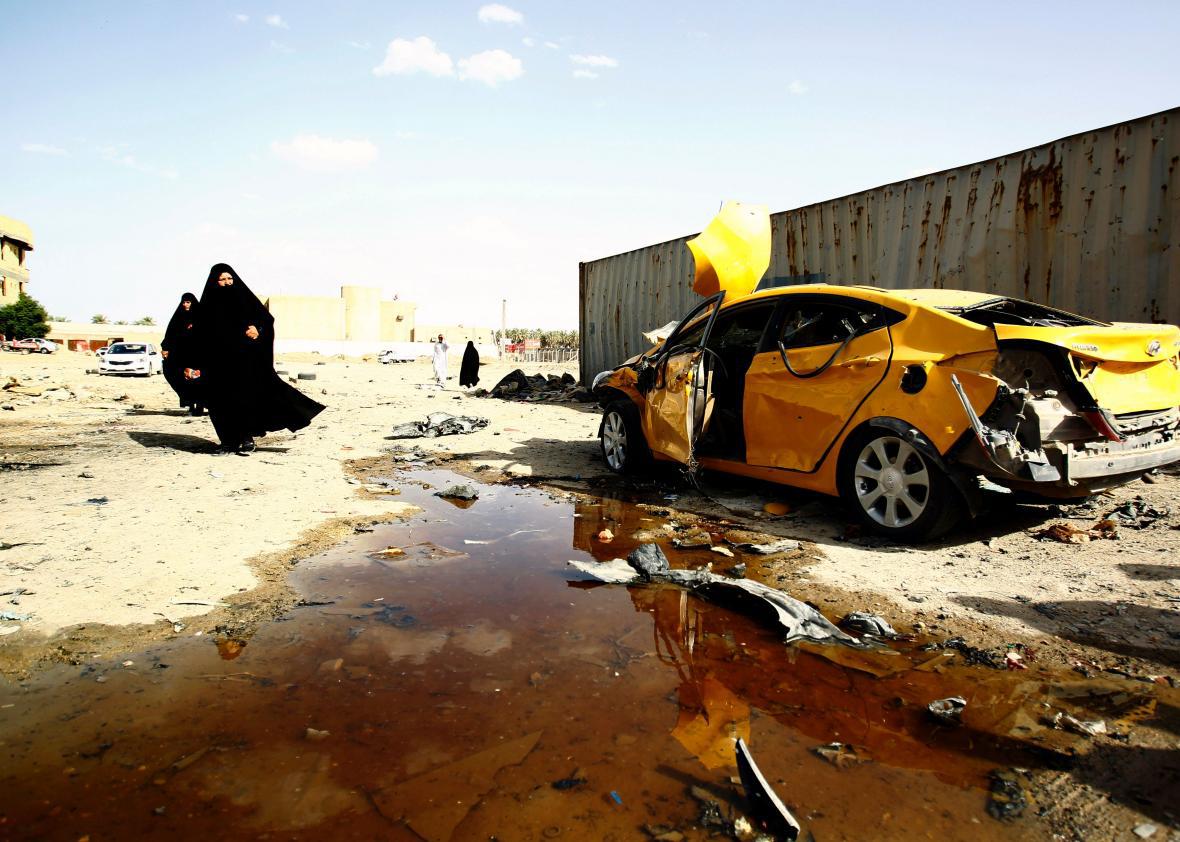A Navy SEAL was killed in Iraq on Tuesday, marking the third combat death of a U.S. service member in the country since American forces returned in 2014, three years after the military’s official withdrawal. The Pentagon is waiting until the family has been informed to name the service member publicly.
“In October, Master Sgt. Joshua L. Wheeler, 39, of Sequoyah County, Okla., became the first American in four years to die in combat in Iraq,” notes the New York Times. “The second was Staff Sgt. Louis F. Cardin, 27, of Temecula, Calif., who was killed in March when rockets were launched at a secret fire base of about 100 Marines in northern Iraq.”
ABC has more on the latest attack:
A Defense official told ABC News that ISIS used truck bombs to break through Peshmerga lines located about 17 miles north of the ISIS-held city of Mosul. The serviceman was killed by ISIS “direct fire” after ISIS forces pushed to his position. There were no other U.S. casualties in the incident.
In line with his advise-and-assist duties with Kurdish forces, the service member was located away from the front lines.
The official said the ISIS attack was repelled by 23 airstrikes carried out by F-15, F-16, A-10 jets and drones that had been called in to support the coalition and Kurdish forces.
The death, which was confirmed to multiple news agencies, comes at a time that the U.S. military presence in the country and its “advise and assist” role in the fight against ISIS has escalated.
On Tuesday, the Washington Post reported on a new outpost made up of about 200 Marines that is less than 10 miles from the front lines in Northern Iraq, noting the recently increased U.S. role and presence:
The new firebase is part of a creeping U.S. buildup in Iraq since troops first returned to the country with a contingent of 275 advisers, described at the time by the Pentagon as a temporary measure to help get “eyes on the ground.”
Now, nearly two years later, the official troop count has mushroomed to 4,087, not including those on temporary rotations, a number that has not been disclosed.
The troops are moving outside the confines of more established bases to give closer support to the Iraqi army as it prepares for an assault on the northern city of Mosul — putting them closer to danger.
The timeline of that Mosul offensive is still very uncertain as the country faces a brand-new political crisis. Maj. Gen. Najim al-Jabouri told the Post that he expected the long-awaited counterattack to happen “soon,” but wouldn’t specify a timeline and acknowledged that the political difficulties were influencing the military planning.
